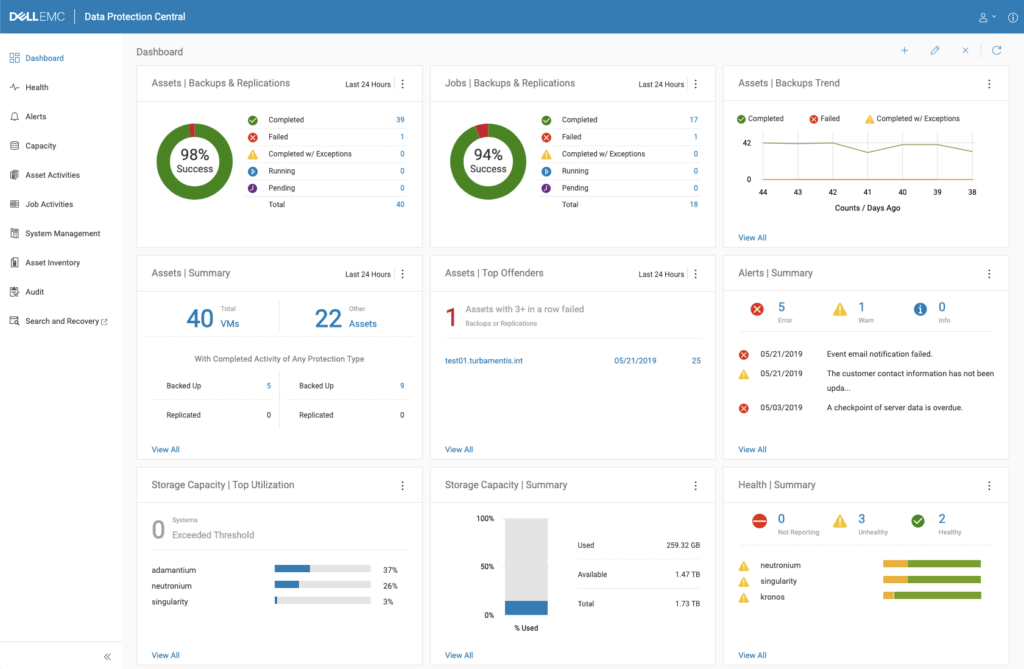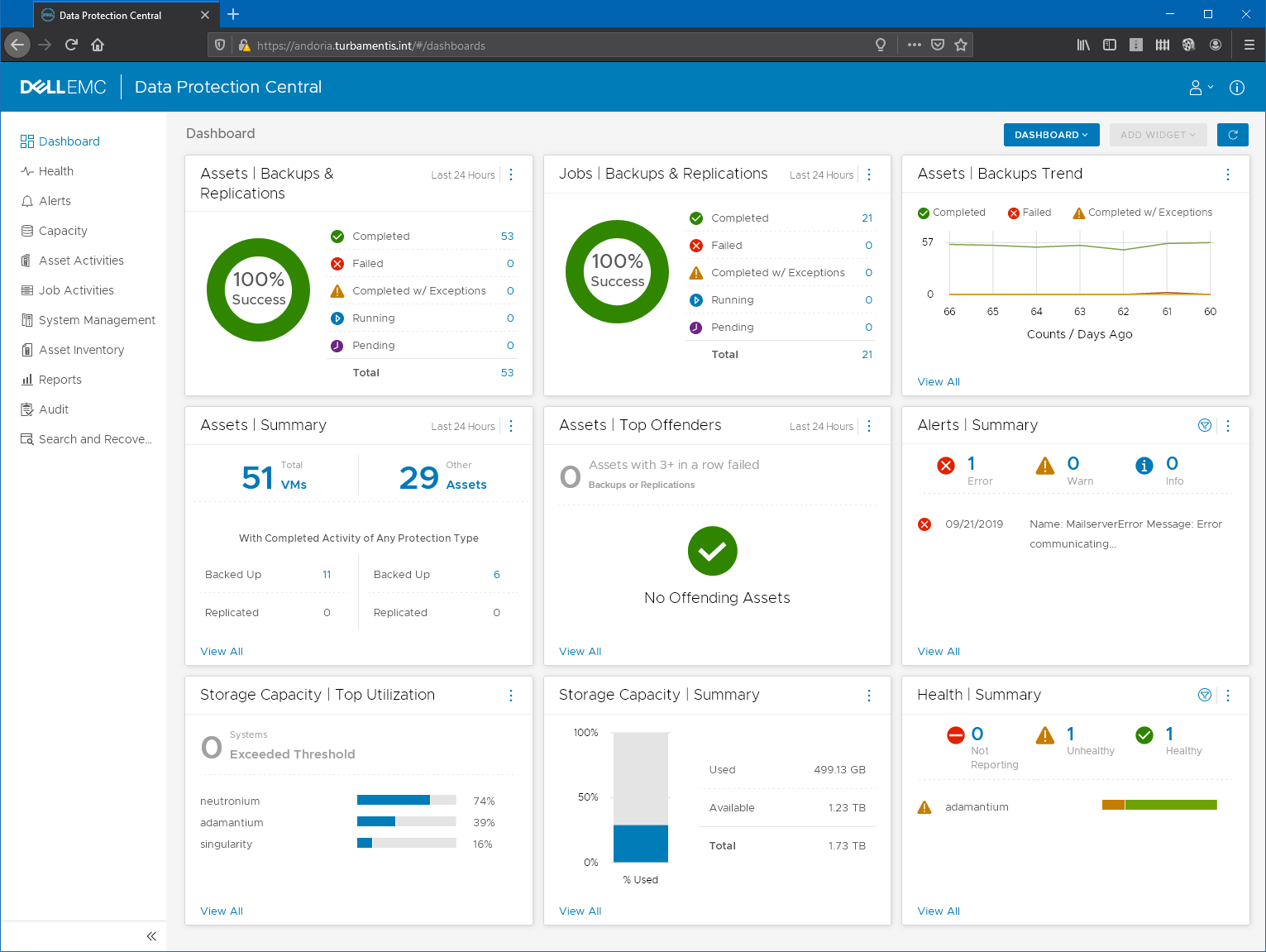Data Protection Central is, to me, a great mechanism for keeping your eye on your data protection environment. If you’re in charge of backups within your environment, you shouldn’t need to spend an hour reviewing backup completion reports each morning. That’s what Data Protection Central is for. It’s not there for your end-users, or your manager, it’s there for you, as the data protection administrator. It’s about saving you time, every day.

DPC isn’t a big, juggernaut of an interface. If you don’t have any changes to make in your data protection environment, you should be able to log in, see 100% success on backups and replication, then get on with your day. But if something has failed overnight, you should also be able to drill in, issue restarts, jump into administrative interfaces if necessary.
DPC is free. If you’re running NetWorker, Avamar, Data Domain, PowerProtect Data manager, or any combination thereof within your environment, you can download and install DPC. There’s no licensing to fuss with, you just install DPC and start attaching your servers.
And that’s what I want to show you in these videos. Now here’s the thing: they’re all simple and short videos! What you should see from these is that if you’ve got half an hour to spare, you could get DPC up and running in your environment!
Deploying Data Protection Central
Adding NetWorker to a DPC Server
Adding Avamar to a DPC Server
Adding a Data Domain to a DPC Server
Adding a PowerProtect Data Manager System to a DPC Server
Integrating Data Protection Advisor with DPC
Wrapping Up
So you see, getting DPC up and running in your environment won’t take any time at all. So what are you waiting for? Here’s a link to the support site so you can get started!

Hi,
Thanks for this detailed blog, Very helpful.
I looked and decided to give a try but i do not have vmware environment . I decided to go for .jar file installation on my SUse linux server.
Have you tried the .jar file installation and would you give some lines for non-ova installation. I got confirmation that only SLES12-SP2 is supported and 550 GB disk space needed. I am not sure about FS layout and and error logs when .jar file is executed.
I was told by my EMC counterpart that it needs 2 disks like OVA. Please assist here with FS layout and installation.
Appreciate your help.
my install failed with below error.
Unpacking emc-dpc-19.2.0-7.bin…
Exception in thread “main” java.lang.RuntimeException: Cannot run program “/tmp/bin2jar2660436617682030497.tmp/emc-dpc-19.2.0-7.bin”: error=13, Permission denied
at com.emc.dpsg.mojo.makeself.jarexec.Exe2JarExec.innerMain(Exe2JarExec.java:62)
at com.emc.dpsg.mojo.makeself.jarexec.Exe2JarExec.main(Exe2JarExec.java:72)
Caused by: java.io.IOException: Cannot run program “/tmp/bin2jar2660436617682030497.tmp/emc-dpc-19.2.0-7.bin”: error=13, Permission denied
at java.lang.ProcessBuilder.start(ProcessBuilder.java:1048)
at com.emc.dpsg.mojo.makeself.jarexec.Exe2JarExec.innerMain(Exe2JarExec.java:56)
… 1 more
Caused by: java.io.IOException: error=13, Permission denied
at java.lang.UNIXProcess.forkAndExec(Native Method)
at java.lang.UNIXProcess.(UNIXProcess.java:247)
at java.lang.ProcessImpl.start(ProcessImpl.java:134)
at java.lang.ProcessBuilder.start(ProcessBuilder.java:1029)
… 2 more
Hi, here’s an output of df, and mount:
Hi, How frequently does the DPC poll avamar or data domain to get the details or metrics.
I believe it’s in the order of 5-10 minutes, but it’s been a little while since I’ve checked.